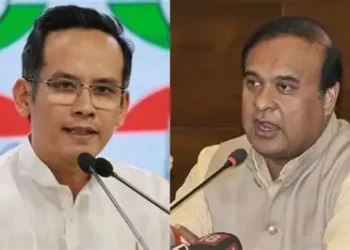Fuel Excise Up, Retail Stable: The government has increased excise duty on petrol and diesel, effective tomorrow. However, consumers will be spared as oil marketing companies will absorb the hike, preventing an immediate rise in pump prices.
New Delhi, April 7, 2025 – Indian households are set to face increased living costs as the price of domestic Liquefied Petroleum Gas (LPG) cylinders has been hiked by Rs 50 per cylinder, as announced by Union Oil Minister Hardeep Singh Puri on Monday. This price revision impacts both subsidized and general category consumers.
According to the Minister’s statement, the cost of a 14.2 kg LPG cylinder will rise from Rs 500 to Rs 550 for beneficiaries of the Pradhan Mantri Ujjwala Yojana (PMUY), and from Rs 803 to Rs 853 for non-Ujjwala users. This increase will place a heavier financial burden on numerous families across the country, particularly those from economically weaker sections.
ALSO READ: Deadly Snowstorm Kills Livestock, Cripples Ladakh Nomads
“The price of 14.2 kg LPG will go on to increase from 500 to 550 under Ujwala and from 803 to 853 for non-Ujwala users,” Mr. Puri stated, outlining the immediate impact on household budgets.
This development contrasts with the recent reduction in commercial LPG cylinder prices by Rs 41, which provided relief to restaurants, hotels, and other commercial establishments. However, the domestic LPG price hike will directly affect the daily expenses of ordinary citizens.
#WATCH | Delhi | Union Minister for Petroleum and Natural Gas, Hardeep Singh Puri says, “The price per cylinder of LPG will increase by Rs 50. From 500, it will go up to 550 (for PMUY beneficiaries) and for others it will go up from Rs 803 to Rs 853. This is a step which we will… pic.twitter.com/frFfC3qr5h
— ANI (@ANI) April 7, 2025
In a simultaneous move, the government has also increased the excise duty on petrol and diesel. However, in an effort to prevent further inflation, the government has declared that the increased excise duty will not be passed on to consumers. Instead, oil marketing companies will absorb the additional cost.
An official order revealed that the excise duty on petrol has been increased to Rs 13 per liter, and on diesel to Rs 10 per liter. This increase in duties is scheduled to take effect on April 8, 2025.
“The increase in duties will ‘come into force on the 8th day of April 2025,'” the order stated.
The government’s decision to absorb the excise duty hike is aimed at stabilizing retail fuel prices, which play a crucial role in the overall economy. However, the rise in domestic LPG prices is likely to contribute to inflationary pressures, affecting household budgets nationwide.
This dual announcement highlights the government’s delicate balancing act between revenue generation and controlling inflation, as it navigates fluctuating global energy markets and domestic economic pressures.
ndia’s inflation, currently at a provisional 3.61% year-on-year for February 2025, has a significant and direct link to the cost of fuel and LPG. Fuel, encompassing petrol, diesel, and LPG, acts as a primary input across various sectors of the economy.
Direct Impact: Higher fuel and LPG prices directly contribute to the Consumer Price Index (CPI), the primary measure of inflation in India, as they form a part of the household consumption basket. The recent Rs 50 hike in domestic LPG will immediately translate to a higher cost of living for households, especially impacting those reliant on it for cooking.
ALSO READ: Waqf Bill Sparks Outrage in Manipur: BJP Leader’s Home Torched Amid Protests
Indirect Impact: The impact extends beyond direct household expenses. Higher fuel costs increase transportation expenses for goods and services. This rise in input costs is often passed on to consumers in the form of higher prices for food, manufactured goods, and various services, creating a cascading inflationary effect across the economy. For instance, increased diesel prices elevate the cost of transporting vegetables, leading to higher food inflation. Similarly, more expensive LPG impacts the operational costs of eateries and food vendors.
While the government has increased the excise duty on petrol and diesel, its decision to absorb this hike for consumers aims to cushion the immediate inflationary impact on transportation costs.
However, the rise in LPG prices will still contribute to overall inflation. Fluctuations in global crude oil prices and government policies regarding fuel taxes and subsidies play a crucial role in determining the extent to which fuel and LPG costs influence India’s inflation trajecto













